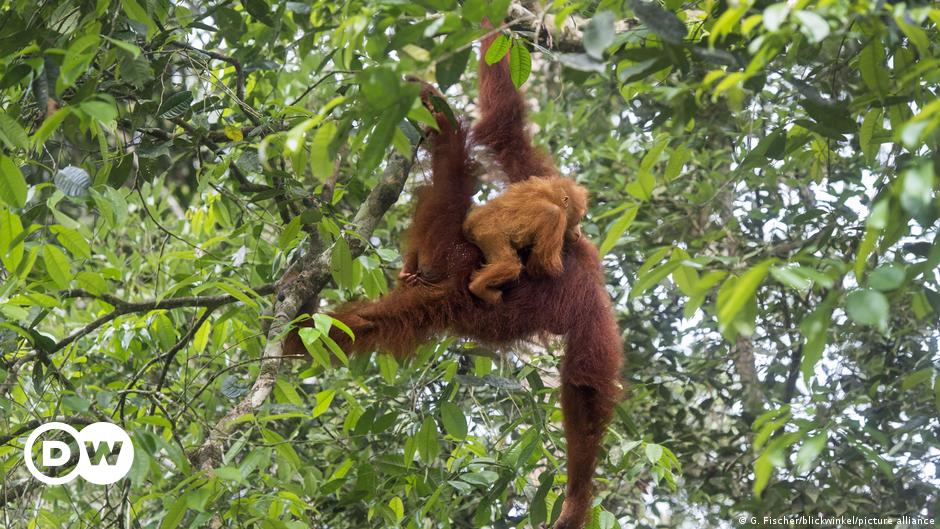Malaysia intends to present orangutans to nations that import its palm oil. The move aims to allay concerns that palm oil production is often linked to the destruction of the endangered apes’ habitats.
Malaysia has said it plans to present orangutans to major palm-oil-importing countries with the aim of boosting its credentials as a conserver of biodiversity.
The Asian nation is the world’s second-largest producer of the widely used commodity, whose production is blamed by environmentalists for fuelling the destruction of the great ape’s habitats in both Malaysia and Indonesia.
The move comes after the EU last year approved a ban on importing commodities, like palm oil, that are linked to deforestation.
Malaysia says the ban has been introduced to protect the bloc’s own oilseeds market.



I’m gonna have to nuance that: while palm oil is an environmental disaster, it is in fact the most efficient vegetable oil in terms of land area per ton of finished product. This is because the the plant that produces it is incredibly productive, more than sunflowers or rapeseed.
So changing to other vegetable oils would result in more land area being cultivated overall.
This is because it grows where rainforests are supposed to be, what is maybe the most productive natural habitat. There is likely far more wildlife per land area where palm oil is grown than places you can grow other vegetable oils.
Sunflowers and rapeseed can be planted and harvested every year or even multiple times a year, palms cannot.
Here is an alternative Piped link(s):
it is in fact the most efficient vegetable oil in terms of land area per ton of finished product
Piped is a privacy-respecting open-source alternative frontend to YouTube.
I’m open-source; check me out at GitHub.